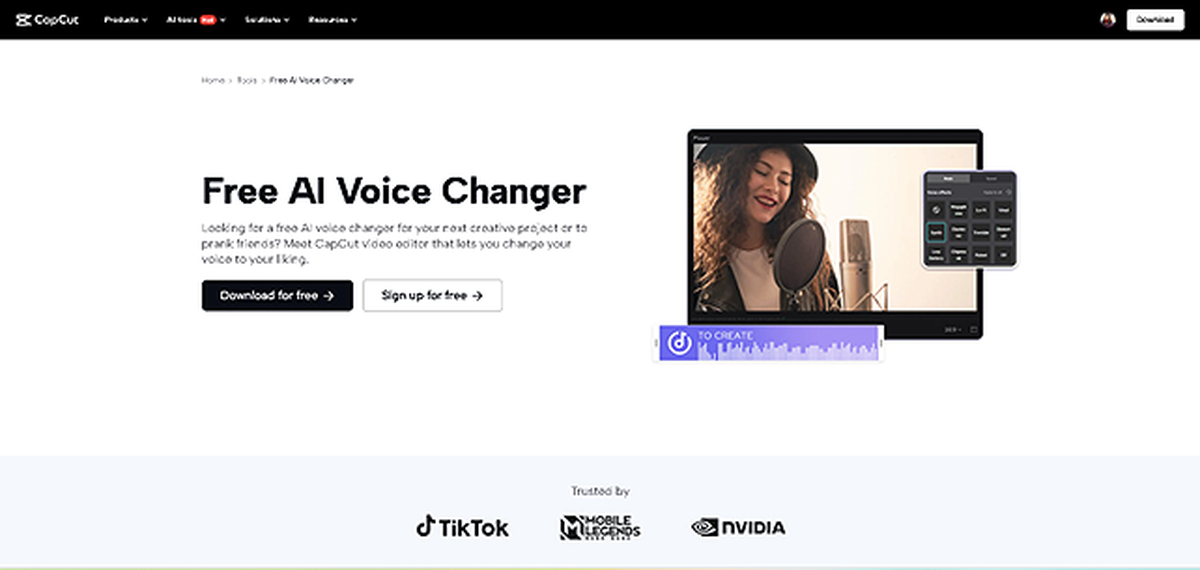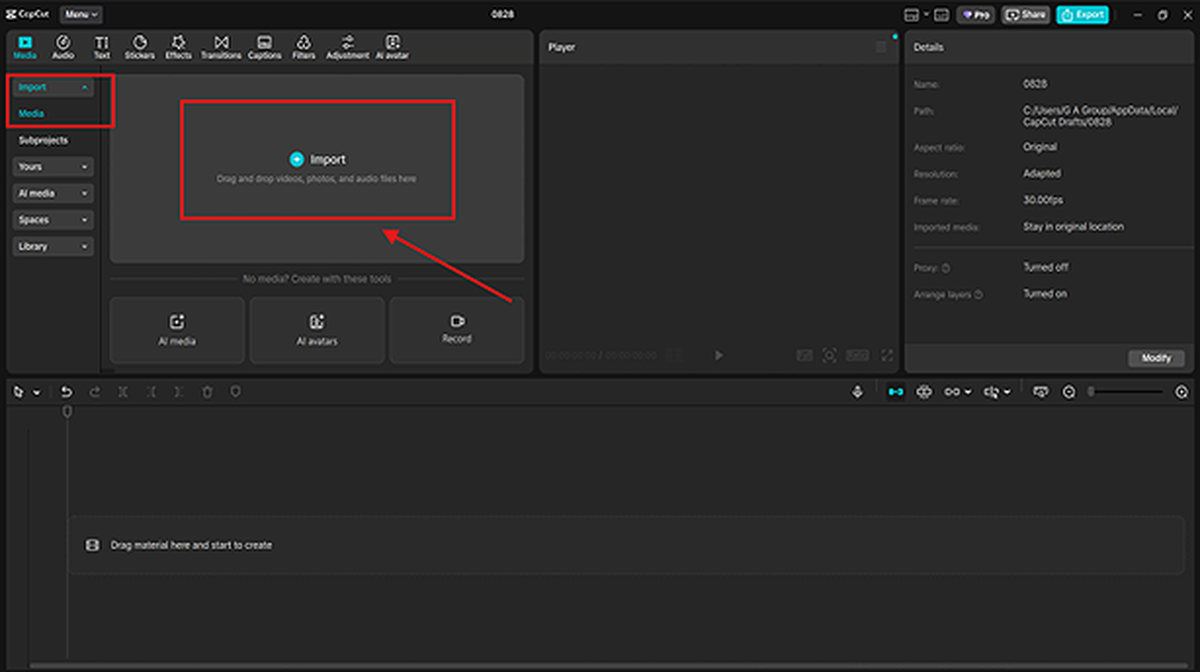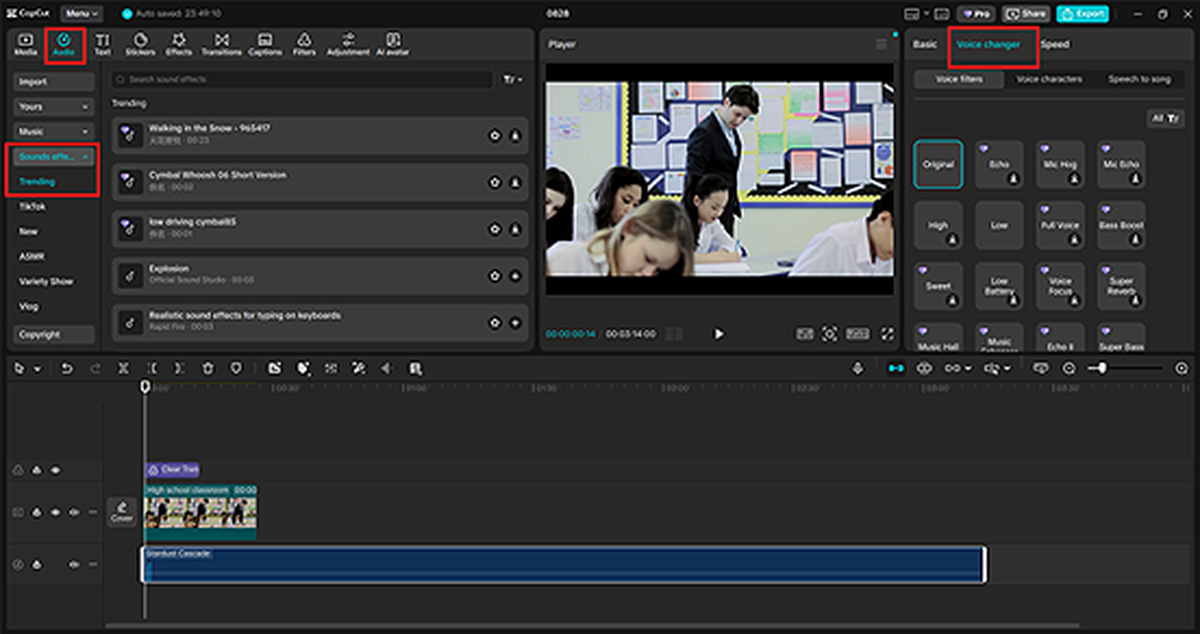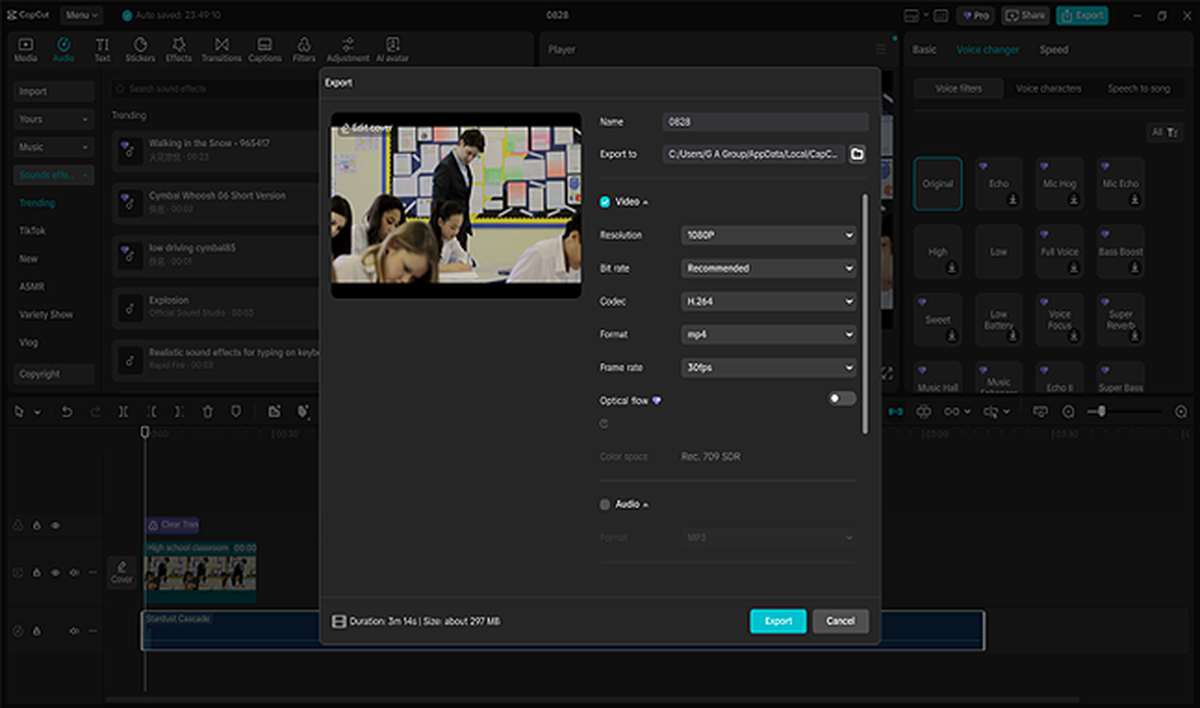15/09/2025
15/09/2025
Teaching has always been about capturing attention, sparking curiosity, and making lessons memorable. However, in today’s world, teachers need innovative ways to connect with students who are growing up surrounded by interactive videos, humorous content, and short-form media. CapCut’s Voice Changer is a playful tool that can transform ordinary lessons into fun, engaging learning experiences. Instead of relying solely on textbooks or traditional lectures, teachers can now bring lessons to life with voice effects that surprise, amuse, and keep students listening. Whether it’s using a robot voice for a science topic, a chipmunk voice for storytelling, or a deep, dramatic voice for history reenactments, the possibilities are endless.

Why Use CapCut Voice Changer in the Classroom?
Keeps Students Engaged
Students learn better when they’re having fun. Adding playful voices to video lessons or classroom presentations instantly makes the material feel less formal and more approachable.
Helps with Storytelling
Storytelling is one of the oldest teaching methods, and the voice changer feature adds an extra layer of entertainment. Imagine reading a story where every character has a unique, silly voice—students are bound to pay attention.
Great for Digital Assignments
Many teachers already assign video projects. With CapCut, students can also experiment with the voice changer for their own assignments, making learning more interactive and creative.
Encourages Creativity
When lessons are presented in new ways, students often feel encouraged to think creatively themselves. This not only makes the classroom more fun but also builds problem-solving and critical-thinking skills.
Breaks Classroom Monotony
Even the best teachers can struggle with attention spans. Switching things up with voice effects provides a refreshing break while still delivering educational content.
How Teachers Can Make Fun Lessons with CapCut Voice Changer
Step 1: Record or Upload Lesson Content

Step 2: Apply the Voice Changer Effect
Now comes the fun part—transforming your normal voice into something your students will never forget. In CapCut, navigate to the Audio section, select Voice Effects, and choose from the available options.
Some popular picks for teachers might include:
• Chipmunk voice for silly or fun examples.
• Robot voice for technology or science lessons.
• Deep, dramatic voice for history reenactments or poetry readings.
• Cartoon voice for storytelling or character-building exercises.

Step 3: Share the Fun with Students
Once your lesson is ready, export the final video from CapCut and share it with your students. This could be shown during class on a projector, uploaded to your online learning platform, or shared via classroom groups.
Better yet, you can assign a fun project where students create their own short videos using the Voice Changer feature. For example:
• In a language class, students could narrate dialogues with funny voices.
• In history, they could re-enact a speech with dramatic effects.
• In science, they could explain experiments in a robot voice.
This hands-on approach not only makes lessons fun but also reinforces learning by encouraging students to explain concepts in their own words. Encourage students to vote on the funniest or most creative project. A little friendly competition boosts motivation.

Here are a few ways teachers can put CapCut’s Voice Changer into action:
• English Teachers: Transform reading sessions into audio plays by assigning distinct voices to different characters. Students will laugh, but they’ll also remember the story better.
• Science Teachers: Use the robot effect to make “science robots” explain tough concepts. Suddenly, even complicated theories sound fun.
• History Teachers: Recreate famous speeches in deep, dramatic voices to make lessons feel like mini-theater productions.
• Elementary Teachers: Turn classroom rules or reminders into silly-voiced announcements. Kids will pay attention—and remember them!
Teaching is about making knowledge stick, and sometimes the best way to do that is by making lessons fun. CapCut’s Voice Changer feature gives teachers an easy-to-use, creative tool for breaking the mold of traditional teaching methods. Whether it’s reading stories in silly voices, presenting science topics with robotic effects, or creating student-led projects with voice play, the possibilities are endless. With just a few clicks, teachers can transform their lessons into something students look forward to. And when students are entertained, they’re also engaged—and when they’re engaged, learning naturally follows. So, if you’re a teacher looking for a fresh way to energize your classroom, give CapCut’s Voice Changer feature a try. You might find that your students remember more, laugh more, and learn more—all at the same time.


